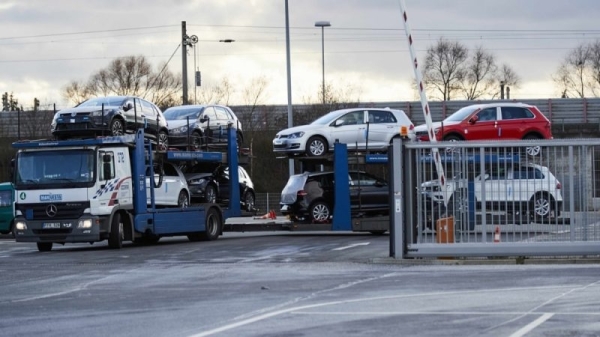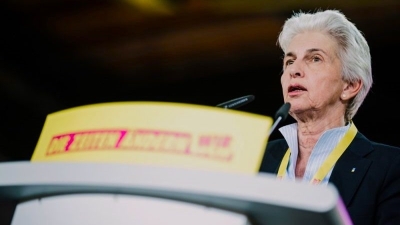European Parliament approves relaxed Euro 7 emissions requirements while stakeholders remain divided

The European Parliament approved a deal on revised emissions rules for cars, trucks, and buses on Wednesday (13 March), but the file remains controversial, with stakeholders divided on whether it goes too far or not far enough in combatting emissions.
The text was passed with 297 votes in favour, 190 against, and 37 abstentions after being substantially watered down from its original draft, with lawmakers arguing that stricter vehicle emissions standards would make cars more expensive for consumers and discourage investments needed for developing electric vehicles.
Several conservative lawmakers called the Commission’s original proposal “unrealistic” on Wednesday.
“As a parliamentary rapporteur, I strongly [opposed] the Commission’s initial draft,” lead lawmaker Alexandr Vondra from the nationalist European Conservatives and Reformists (ECR) group said ahead of the vote.
“My main concern was the potential impact both on industry and customers: The Commission’s proposed changes particular to vehicle testing requirements would increase manufacturing costs and raise prices for small-budget cars, which are essential for working people and rural communities,” he continued.
Vondra said it was “crucial to find a good balance between the environmental NGOs’, manufacturers’ and social interests.”
He added that the agreement represents a “fair and reasonable compromise,” keeping emissions limits for passenger cars the same as those in Euro 6 but introducing stricter limits for bus emissions in the revised version of the text.
While buses and trucks will be subjected to stricter exhaust emissions policies, the current Euro 6 testing regulations for these exhaust emissions will remain in place. They are less stringent than the ones initially proposed by the Commission, according to environmental organisation Transport and Environment (T&E).
“Sadly, we expect there to be very limited, if any, [environmental] benefit,” T&E Vehicle Emissions and Air Quality Manager Anna Krajinska told Euractiv. “The main reduction in pollution will be from non-exhaust emissions … but the gains there really aren’t enough to outweigh the weakness of the rest of the file.”
But not everyone agrees. ACEA, the European Automobile Manufacturers’ Association, released a statement after the vote saying the Euro 7 is significantly stricter regarding exhaust emissions for buses and trucks.
“Truck and bus manufacturers will face significantly more stringent rules, as they already face an uphill climb to meet rapidly approaching 2030 decarbonisation targets in the absence of vital enabling conditions,” Sigrid de Vries, ACEA director general, said in the statement.
ACEA said lawmakers’ priorities should be limiting the amount of older vehicles on the road and facilitating the uptake of newer cars with better emission technology. ACEA praised lawmakers for focusing on brake and tyre emissions, echoing sentiments from lawmakers that, as the EU shifts towards green vehicles, the bulk of emissions will come from sources other than exhaust pipes.
In addition to limiting particulate emissions from brakes and tyres, the Euro 7 also mandates better electric vehicle battery durability, which ACEA praised, meaning EV batteries will have to perform better for longer.
These durability requirements, however, are not much better than the performance guarantees car manufacturers currently voluntarily pledge, Krajinska said.
“Even those requirements are incredibly weak and, at this point, are unlikely to make much difference at all,” she added.
Krajinska accused the EU institutions of greenwashing. “It’s really disappointing that politicians really gave into that lobbying and prioritised record carmaker profits at the expense of everyone’s health,” she said.
All MEPs from The Left, and the majority of MEPs from the Greens and S&D groups, voted against the proposal.
Nikolaj Villumsen, the lead lawmaker on the file for The Left group, called the file “false marketing” and expressed disappointment that nothing in Euro 7 is substantially different from Euro 6.
“The sad truth is that this agreement will cost European citizens their lives,” Villumsen said during the parliamentary debate ahead of the vote. “In large European cities, people will die because the automotive industry’s interests have been prioritised above those of human lives.”
The Council of the EU will now need to officially approve the text.
Read more with Euractiv




